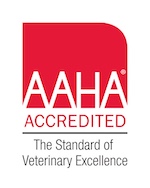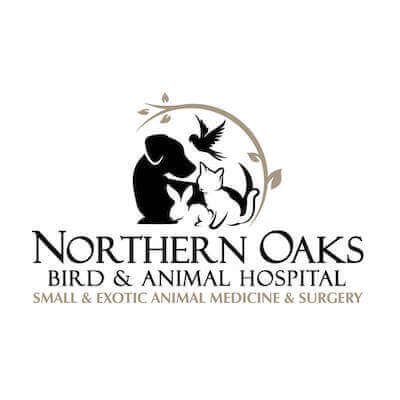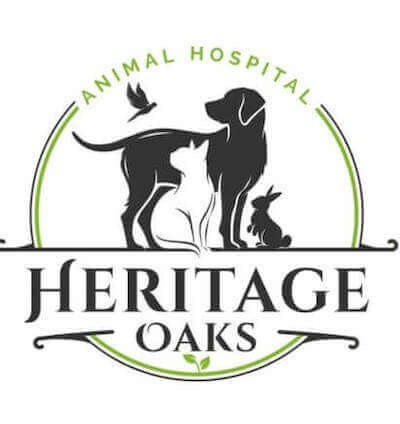How does puppy care impact the life of the dog?
Proper puppy care will provide you with a healthy puppy starting from the beginning. It's much better to know what's going on and to start with healthy care than it is to find a problem later and wish you had done it. So if we can use preventative care as a way to keep your dog healthy starting from day one and to move forward with a healthy puppy, it will really, really impact the life of this pet and give you a much longer, happier relationship with your dog.
Dr. Becka Byrd
Northern Oaks Bird & Animal Hospital and Heritage Oaks Animal Hospital
Why is it important to start it on day one?
Just so that we don't go down the hole and have a problem that we didn't even know about and we can start off on the right foot.
How soon should you bring your puppy for its first exam?
Pretty much the day you get it. We want to start off really well and puppies can have hidden problems such as parasites, heart murmurs, things like that, that you would never know without bringing them in. Parasites are microscopic, so that's why we run a stool sample to see what we can find. Those are contagious to people and other pets, and we don't want that around your house, but we can treat that. Learning that early is really important. Heart murmurs aren't something you're going to know just from looking at your adorable puppy. So we need to know if that's what's going on.
What are some common health problems in puppies?
Some common health problems might be a tired puppy, a puppy with diarrhea, and vomiting. All of these are signs that a puppy might need to be looked at. Occasionally, soft stools come simply from changing a household and changing diets, but a lot of times, there's something deeper at play. We need to know if that's going on so we can determine if it requires treatment.
What are the signs and symptoms of illness in puppies?
Signs and symptoms of illness include not eating, diarrhea, vomiting, swollen gums, excessive thirst, runny eyes or nose, and coughing. These are serious symptoms, and we want to make sure we know what's happening.
What are the signs of a healthy, thriving puppy?
A healthy, thriving puppy comes over to play for 30 minutes, then rests for 20 minutes, repeats this pattern, eats well, and goes to the bathroom about 15 minutes later. Healthy puppies are bright, shiny, and have bright eyes with no drainage. They breathe healthily, want to play, interact, sleep a little, and then perk up to play again. These are the signs of a healthy, happy puppy that we want to see.
When should you start puppy training?
As soon as you get your puppy, you want to start working on potty training and meal training. We want to start off on the right foot from day one. Remember, these are like little babies, and the sooner we start training, the sooner they'll learn the ropes.
What is looked for during a puppy exam?
During a puppy exam, we conduct a nose-to-tail examination, checking ears, eyes, nose, throat, heart, fur, and skeletal system. We look for abnormalities such as kneecaps that pop in and out of joint, responsiveness, and proper pupil function. If everything looks great, you've got a healthy puppy. We'll also start with age-appropriate vaccinations, run a stool sample to check for parasites, and discuss preventative measures.
If you have any other questions, please give us a call at (210) 496-1315. You can also email us at [email protected] and we will get back to you as soon as we are able. Don't forget to follow us on social media: Facebook and Instagram
Puppy Care - FAQs 1
Dr. Becka Byrd
Northern Oaks Bird & Animal Hospital
What should I expect at my puppy's first vet visit?
You're going to come to the hospital, we're going to meet your puppy and obviously we're going to be thrilled to do so and then we'll go over with you what the expected preventative care is for puppies. We want to make sure that you're an advocate for your pet as well so we want you to understand the full steps that we're going to take with your puppy through their lifetime and through their puppyhood.
What happens during the examination?
So we're going to examine your puppy nose to tail, make sure everything looks good including the heart, the gums, the eyes, ears, nose, throat. We want to be sure you have a healthy investment here that you can really love and have healthy for a lifetime. We're going to talk to you about what we would like to do today based on what your puppy has already had and moving forward what the steps will be through your puppy's entire juvenile term.
What about questions from the owner?
From there we're going to ask you what questions you have and then we want you to ask the questions that you have. How about potty training? How about diets? All of those things that you've got questions about and we want to review that with you in depth so you can be an advocate for your puppy's health as well.
How often does your puppy need to go to the veterinarian?
As a baby they need to come every three weeks until they're 16 weeks old. They can't hold their vaccinations longer than that because they have maternal immunity also on board that fights the vaccination. So once they're 16 weeks old they can usually hold that immunity for the year but up until that point we have to boost that every three weeks. And at that time we'll take a weight, a temperature, we'll see how they're growing, we'll check all those systems again, make sure everything is remaining healthy. And at that time you can also discuss with us any concerns you've realized as you're growing along with your puppy.
When should you get your puppy spayed or neutered?
That probably depends on the breed and what your specific plans are with your puppy but in general we're going to recommend between 16 weeks and 6 months. We want to do that before any first heat cycles or any chance to start marking furniture or showing behaviors that are dominant or beginning to have any sort of reproductive behaviors.
What are some things we're looking at on the first appointment?
Just for a healthy bright puppy we want to make sure this puppy is interactive. We're looking for any behavioral issues like biting or aggression beyond normal puppy chewing and we're looking for any things that require correction and things we can help you address such as behavioral sniffing, things like that. We want to be on top and be an advocate for your pet and help you with potty training, all the things we can possibly do to help you have a successful relationship with your puppy.
If you have any other questions, please give us a call at (210) 496-1315. You can also email us at [email protected] and we will get back to you as soon as we are able. Don't forget to follow us on social media: Facebook and Instagram




